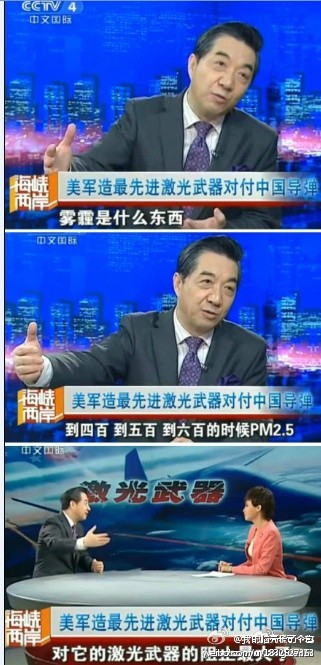The word “airpocalypse” was used last January to describe record PM 2.5 levels in Beijing, and the doom-laden term has regularly appeared in foreign media headlines since. Last December, officials from China’s health and environmental bureaus published a report in The Lancet estimating the human cost of air pollution in China to be between 350,000 and 500,000 a year, and last week state-media reports cited a Chinese think tank’s blue paper noting that smog made the capital “barely suitable” for life (censors acted quickly to scrub the web of dismaying reports on the blue paper).
Even if unrestrained media discussion isn’t yet allowed, pernicious air quality has become a major government concern. Central and local authorities have made proactive efforts to foster better air quality by calling for increased transparency and creating a $1.6 billion scheme to subsidize the fight against air pollution. Last October, Beijing drew up an emergency response plan for lingering smog complete with a four-tiered alert system, which hit “orange” last week for the first time.

CCTV talks to Rear Adm. Zhang about the defensive benefits that come with PM2.5-heavy smog. (Weibo/我的脑壳长了个包)
As concern grows along with opportunity in China’s protective mask market, CCTV has been doing its part to ease public anxiety by assuming a glass-half-full view of air pollution. After highlighting “five unexpected gains” that smog has brought to China last December, the state-broadcaster recently pointed out a benefit that air pollution has for national security. As Beijing was sounding the “orange” alarm on Thursday, the U.S. Navy was announcing plans to launch its first seaborne laser weapon. CCTV interviewed PLA Navy admiral and frequent state-media talking head Zhang Zhaozhong [zh], who put pollution into the context of military theory—turns out, the heavier the shroud of smog, the safer Beijing is from laser weapons. From Ecns.cn:
“Zhang Zhaozhong, theorist and commentator at PLA National Defense University, talked about the shortcomings of laser weapons on a program on China Central Television (CCTV), saying that the metallic particles in smog can obstruct laser.
When the PM 2.5 in the air reaches 600 microgram per cubic meter, the smog can be a highly effective defense, he added.
“Without smog, laser weapons have an effective range of 10 kilometers, but it has only one kilometer in smog,” he said. “What’s the use of such weapons?!” [Source]
Netizens were quick to ridicule Adm. Zhang’s comment:
小党:Well if this is the case, let’s just forget about bringing the smog under control—for the sake of the homeland.
如此这般,为了国土安全,雾霾咱就别治理了。
骑士神马:The more I think about it, the harder it is for me to sleep at night. What ever would we do if the sky cleared up one day?
越想越睡不好觉,万一哪天天变好了咋办。
安卓论坛:And all this time, it turns out producing smog is an act of patriotism. Did you know?
原来制造雾霾是一种爱国行为,你知道吗?
如此袁来:Don’t call General Zhang a stupid cunt—the only reason General Zhang can go around acting smug like this is because of our powerlessness and stupidity.
别骂张将军傻逼,因为张将军能如此招摇是因为我们每个人的无能和傻逼。
天下第一秋:Old Comrade Zhang! You’re on our side! How could you just blurt out our most sophisticated weaponry like that?!
老张同志!你也是老同志了!怎么能把我们的最尖端的武器说出来了!
In an interview following the barrage of netizen criticism [zh], the admiral said his remark was taken out of context: “I was only talking about the disadvantages of laser weaponry, I wasn’t supporting smog” (我只是在说激光武器的劣势,不是支持雾霾的意思).
Translation by Little Bluegill.







